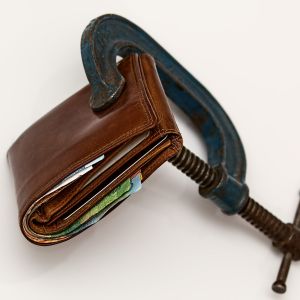For many, the word budget is a hard pill to swallow. It means the end of fun–no more going out with friends, or taking a weekend trip with the family. That budget is like a weight holding you down that prevents you from living your life.
But that could not be farther from the truth.
A budget is not there to stop you from living your life. Instead, that budget is what is going to help you get to the point where you can truly live your life without too many financial worries. Your budget is a snapshot of what you bring in versus what you spend in a month. It’s what will help you set your financial goals.
If you’ve been told that a budget will ruin your life, it’s time to change that mindset. Once you see that a budget is here to help you, not hinder you, it will become easier to manage one. Managing your budget is key to it being successful, so here are five tips that will help you out.
Get Help
If you’re working on your first budget, get some help from those who have used one for years. Trying to manage one on your own at the start can be overwhelming and disheartening. Either you make your budget too unrealistic to the point that you give up, or you make it so lenient that it doesn’t solve anything.
Have an Emergency Fund Category
If you’re in debt and the budget is there to get you out, likely you’ll want to throw most of your money to your loans. Maybe your debt is small, and you made a budget to grow your savings, so again you put most of your income into your savings category. The idea of setting aside money that you shouldn’t touch very often isn’t appealing.
The truth is, though, you should have money set aside that is for emergencies only. A 2015 study found that just under half of America wouldn’t be able to handle a $400 expense suddenly thrown their way. Having that emergency fund included in your budget will prevent you from going further into debt if a sudden expense occurred.
Expect to Have Bad Months
Not every month will go as planned. With the holiday’s approaching, you will likely have more expenses than usual. There could be a special event coming up that you cannot miss which will cost you money. It will be okay.
Properly managing a budget means you understand that you cannot win every time. There will be times when you blow your budget. Don’t let that overwhelm you and turn you away from your budget. Part of managing your budget includes you evaluating that month and learning from it.
Take it Month by Month
Until you’re confident in your budget, start off slowly. Take it month by month until you have a better grasp as to how a budget works, and what system works best for your situation.
You may find that what you did the month before won’t work for you. So, then the following month, you can switch it up a bit to see if a different system will work better. Budgeting at the beginning is trial and error.
Take it Seriously
Managing a budget comes down to how seriously you take it. If you only tack some of your expenses and don’t really care when you go over budget, don’t expect to get very far with it. If you don’t take your budget seriously, you’ll soon start questioning why you made one in the first place.
If you want to be successful with your budget, you need to take it seriously. That includes holding back on spending if you’re over in one category. It also means making adjustments to your current financial situation.
Don’t let a budget be the end of your happiness. Instead, approach it as a tool to help you reach your financial goals. By sticking with it and properly managing it, your budget will help lead you on the path to financial freedom.

